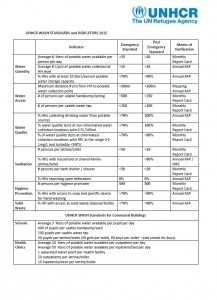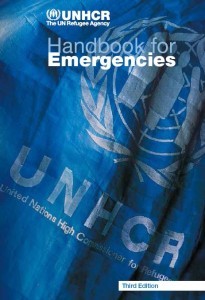
This report presents a methodology to cost water services that has been adapted from the life-cycle costs approach (LCCA) initially developed and tested in regular settlements and which has currently been adopted by more than 80 organisations across the world.

This sanitary survey form can be used to monitor and evaluate the condition of communal and public toilet blocks in a refugee setting. The main purpose of this tool is to rapidly identify public health and protection related risks. The tool can also be used in the medium term to monitor trends in the condition of toilet infrastructure.

This is the standard UNHCR borehole drilling log and pump test template available in PDF and MSWord formats. WASH actors should ensure that a drilling log, development log, constant discharge pump test, and step drawdown pump test are completed for every borehole installed. Copies should be kept by the drilling agency, the WASH actor, national regulatory authorities, and UNHCR.

This one page document provides a summary table of the UNHCR core WASH indicators along with their emergency and post-emergency target levels and measuring frequencies.

This document provides a snapshot of WASH service provision in Azraq Refugee Camp undertaken on the 15th – 16th February 2015. The document document provides an overview of the conditions in 912 WASH blocks with a focus on structural integrity, safety, access, and cleanliness.







